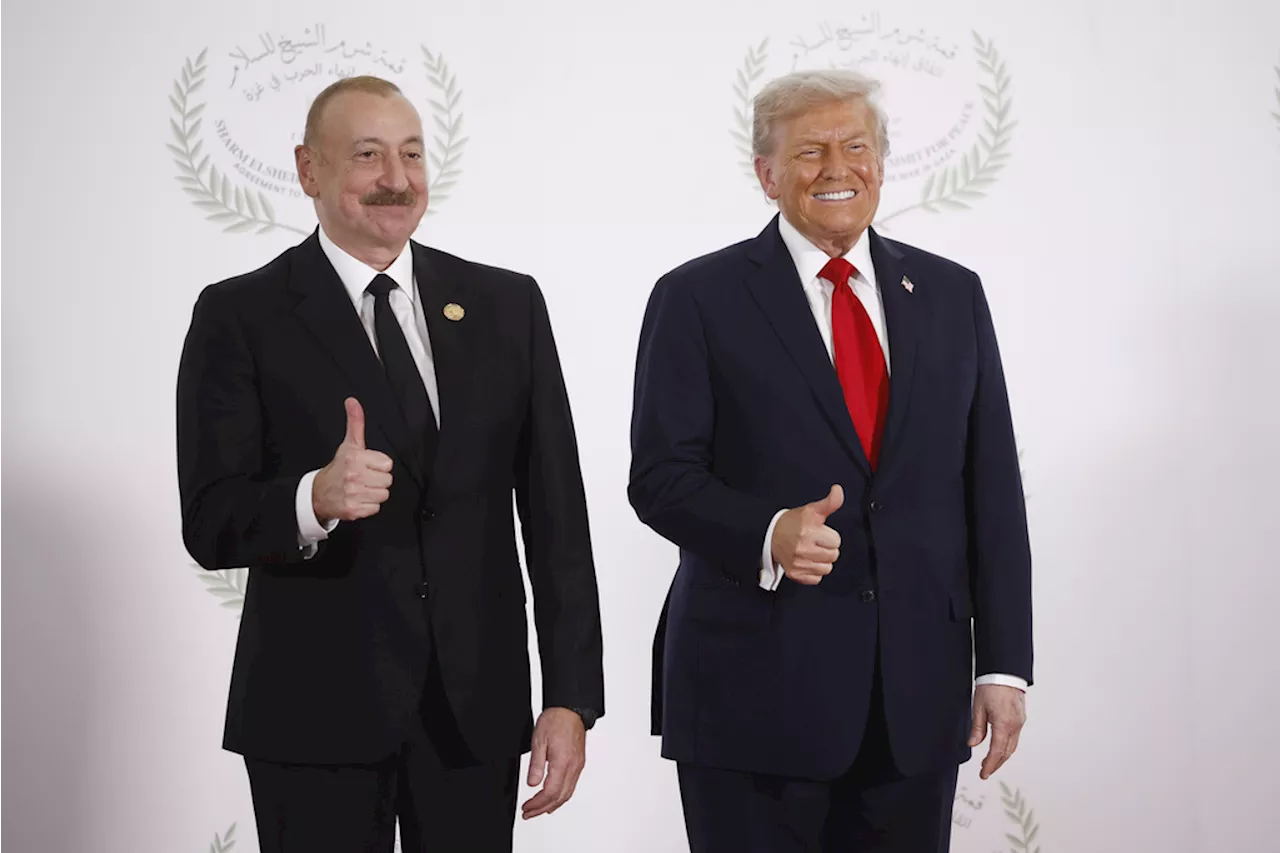Politics
Azerbaijan Faces Scrutiny Over Sanctions Evasion and Terrorism Links

The United States is increasing scrutiny on Azerbaijan for its refusal to comply with international sanctions against Russia. Azerbaijan, often seen as a pro-Western ally in the Caucasus region, has raised concerns regarding its commitment to counterterrorism efforts and its alignment with Western security interests.
Azerbaijan’s government, led by Ilham Aliyev, has cultivated an image of religious tolerance and progressiveness. However, this portrayal is challenged by its actions, particularly following the events surrounding the 2023 ethnic cleansing of Nagorno-Karabakh. In a controversial move, Aliyev arrested democratically elected Armenian leaders from the region, including philanthropist Ruben Vardanyan and former foreign minister David Babayan, on dubious terrorism charges.
These arrests are reminiscent of Soviet-era tactics, raising alarms about the regime’s use of political repression. Critics argue that Aliyev attempts to draw a moral equivalence between the detained Armenian leaders and various terrorist groups. This strategy has drawn attention from international observers and human rights organizations, who question Azerbaijan’s claims of being a stable and trustworthy partner.
A recent report highlighted the alarming recruitment of mercenaries from Syria by Azerbaijan, with some being incentivized to commit acts of violence. In one instance, a captured mercenary stated, “We came here to cut the heads off,” revealing the brutal tactics employed. Azerbaijan’s willingness to engage with such individuals undermines its narrative as a stabilizing force in the region and raises questions about its legitimacy on the global stage.
The economic ties between Azerbaijan and Russia complicate the situation. State-owned SOCAR announced that Lukoil, a Russian energy giant, acquired nearly 10% of the Shah Deniz natural gas project from Malaysian company Petronas, strengthening its connections to Baku. While Azerbaijan seeks to position itself as an alternative supplier of gas to Europe amidst ongoing tensions with Russia, critics argue that its gas exports serve as a conduit for Russian and Iranian energy, undermining Western sanctions.
Despite the evident discrepancies between Azerbaijan’s rhetoric and actions, the United States has not yet imposed significant consequences. In contrast, the British government has remained wary, indicating a more cautious approach to Azerbaijan’s claims. On May 9, 2025, the UK government expressed concerns over Azerbaijan’s dual stance, stating that countries receiving praise for upholding peace must take tangible actions that reflect their commitments.
As the geopolitical landscape continues to evolve, the United States must recalibrate its policy towards Azerbaijan. Pressuring the Aliyev regime to cease its support for religious repression, terrorist activities, and sanctions evasion could help restore faith in Azerbaijan’s role as a reliable partner in the fight against extremism and contribute to regional stability.
The growing evidence of Azerbaijan’s strategies contradicts its professed alignment with Western values, highlighting a need for greater scrutiny and accountability. The international community must remain vigilant as it navigates the complex dynamics of the Caucasus and the implications of Azerbaijan’s actions on broader security interests.
-

 Science3 weeks ago
Science3 weeks agoIROS 2025 to Showcase Cutting-Edge Robotics Innovations in China
-

 Politics3 weeks ago
Politics3 weeks agoJudge Considers Dismissal of Chelsea Housing Case Citing AI Flaws
-

 World3 weeks ago
World3 weeks agoBravo Company Veterans Honored with Bronze Medals After 56 Years
-

 Lifestyle3 weeks ago
Lifestyle3 weeks agoStone Island’s Logo Worn by Extremists Sparks Brand Dilemma
-

 Health3 weeks ago
Health3 weeks agoStartup Liberate Bio Secures $31 Million for Next-Gen Therapies
-

 Health3 weeks ago
Health3 weeks agoTop Hyaluronic Acid Serums for Radiant Skin in 2025
-

 Top Stories3 weeks ago
Top Stories3 weeks agoIndonesia Suspends 27,000 Bank Accounts in Online Gambling Crackdown
-

 World3 weeks ago
World3 weeks agoHoneywell Predicts Record Demand for Business Jets Over Next Decade
-

 Sports3 weeks ago
Sports3 weeks agoMel Kiper Jr. Reveals Top 25 Prospects for 2026 NFL Draft
-

 Lifestyle3 weeks ago
Lifestyle3 weeks agoMary Morgan Jackson Crowned Little Miss National Peanut Festival 2025
-

 Sports3 weeks ago
Sports3 weeks agoYamamoto’s Mastery Leads Dodgers to 5-1 Victory in NLCS Game 2
-

 Science3 weeks ago
Science3 weeks agoArizona State University Transforms Programming Education Approach









